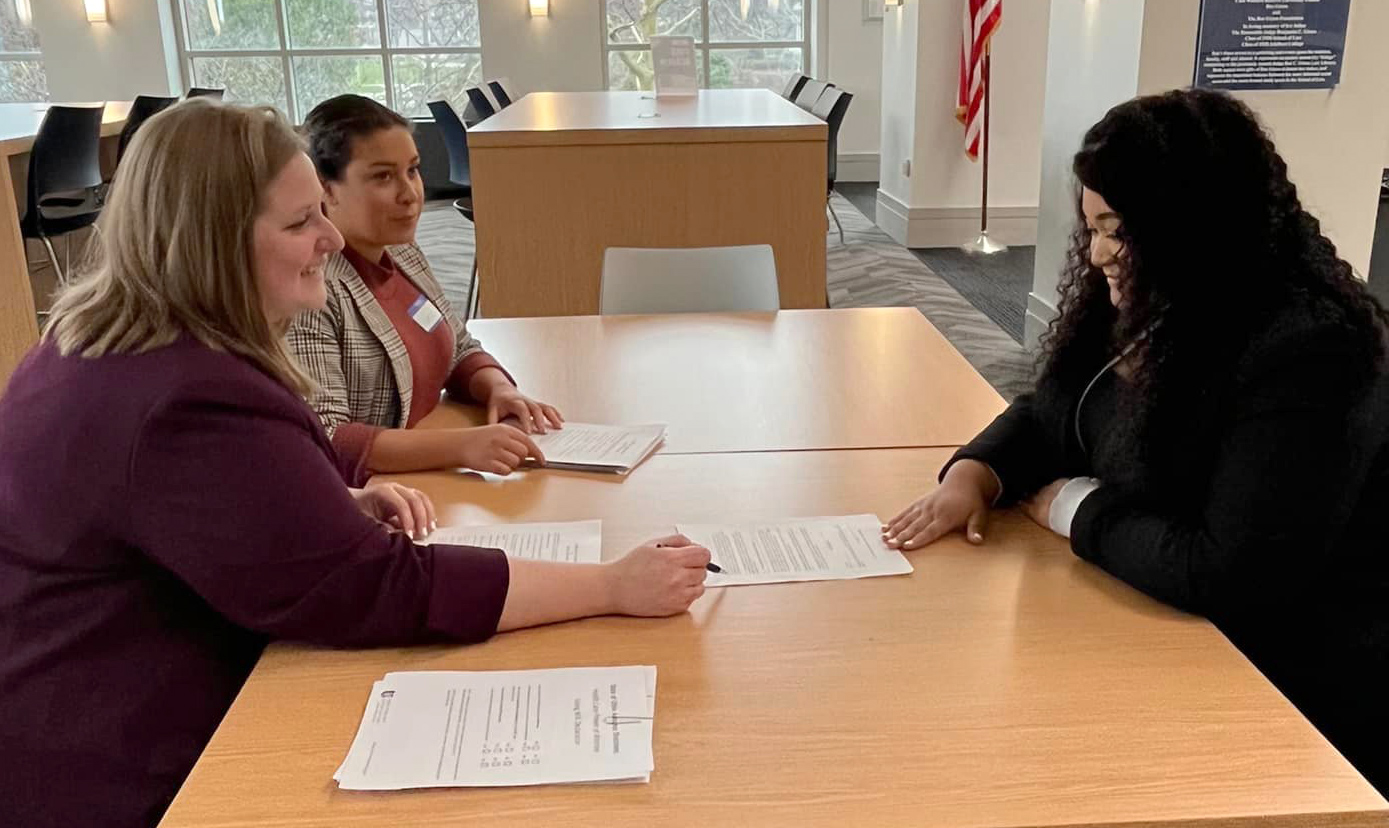lens
'Pop-Ups' with Lasting Impact
Law school clinics offer free services to low-income clients
 From left: During a recent pop-up clinic at the CWRU School of Law, students Lilian Hall and Valera Ghali worked with client Ayanna Jackson to create a new will and advanced health directives.
From left: During a recent pop-up clinic at the CWRU School of Law, students Lilian Hall and Valera Ghali worked with client Ayanna Jackson to create a new will and advanced health directives.By the time Deborah* turned 40, she was caught in a tailspin of bad choices, convicted on several criminal charges, domestic violence and felony weapons offenses. But in the following years, she worked hard to turn her life around, earning bachelor's and master's degrees and pursuing a doctorate.
"I tried to straighten the arrow," the Akron native said, "but it wasn't enough." Tarnished by her past, she could only land jobs she considered "mediocre" and was routinely passed over for others. But then she learned about a free "pop-up clinic" at Case Western Reserve's School of Law that helps low-income job applicants expunge their criminal records.
The one-day clinic is offered two to three times a year. It is part of the school's Second Chance Reentry Clinic, which faculty say is one of the first in the country focused on clients seeking to expunge past records.
It also is one of three pop-up clinics at the school. The others help clients change the way their names and gender appear on identification cards and records or complete wills and healthcare directives. The pop-ups are overseen by faculty and run by first- and third-year law students.
These clinics—offered on campus and also hosted by organizations around the community—provide low-income residents access to legal services, said Laura McNally, JD, associate dean for experiential education and director of the school's Milton and Charlotte Kramer Law Clinic.
Cases that can't be resolved in an hour come back to the law school, where students continue working on them.
"For our clients, it's an opportunity for a fresh start," said Hannah Christ, JD, director of the Second Chance Reentry Clinic. "For our students, this is their first actual legal experience, and they're making a difference in peoples' lives. They're learning how to be good lawyers."
Cole McKee, a third-year student, mentored first-year students at a recent pop-up as they worked with clients. "This experience was immeasurably rewarding," said McKee, who will work in the Bronx County District Attorney's Office in New York City after graduating. "It was important to see how this work can have a meaningful effect in our clients' lives."
Deborah's second chance feels like a clean slate, and she aims to seek a job after completing further academic courses. "When I found out [that a judge signed the expungement paperwork], I cried like a baby," she said. "Hannah doesn't realize that she and the clinic have helped me to open up an avenue to move forward."
*Think is using only her first name.
Clients Served in Pop-Up Clinics
Since Fall 2021
194 clients
Expungement Clinic40 clients
Wills Clinic60 people
Name & Gender Marker Clinic— COLIN MCEWEN





